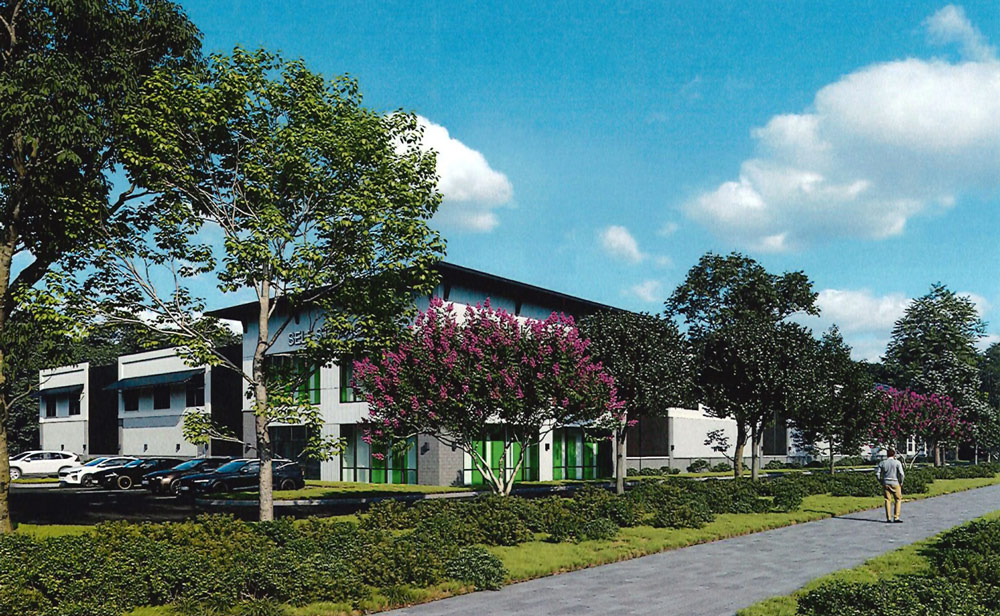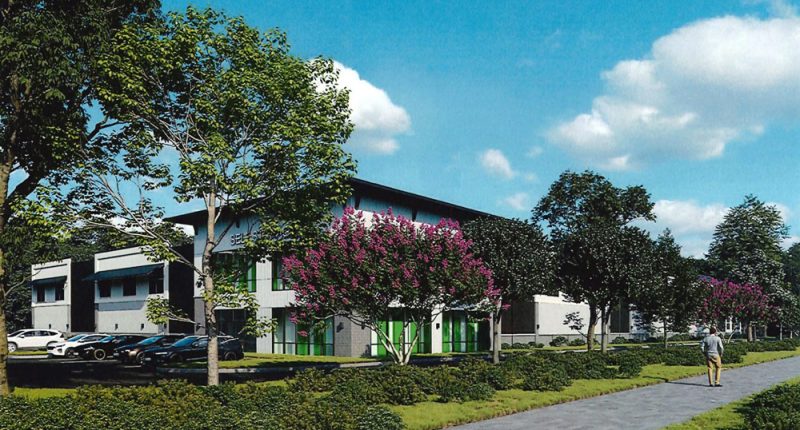
Over the past few years it looked as if every application for a new self-storage facility sailed through planning boards at the county or in Palm Coast. The streak ended Wednesday when the Palm Coast Planning Board in a 4-2 vote denied an application for an 850-unit, 100,000 square foot self-storage facility on Pine Lakes Parkway, halfway between Belle Terre and Palm Coast Parkway. The facility would have 26 outdoor recreational vehicle and boat storage spaces.
The decision is not final and may not have been reached within the legally permissible parameters of the Planning Board’s responsibilities. Rather, it appeared to reflect increasing if subjective frustrations with the sprawling explosion of self-storage facilities over the city landscape rather than violations of the land development code the board members could point to. As such, the decision may not withstand legal scrutiny and is likely to be overturned by the City Council.
The applicant has 30 days to file an appeal to the City Council. No appeal has been filed yet.
The applicant for the Hill Pointe Way Self-Storage, near the Pine Lakes apartment complex, is seeking a special exception that would allow construction there. Self-storage facilities are allowed in high-density commercial zones, but must secure a special exception if they are located in mixed-use zoning districts. In other words, “by right, a self storage facility is not a permitted use,” City Planner Michael Hansen said.
The land is owned by the Miral Corporation but is under contract to Johnson Development Associates, a Spartanburg, S.C. developer that specializes in light industrial, self-storage and apartment construction. Johnson has 21 self-storage facilities in Florida.
The self-storage facility would have been a third of a mile from another like it on Pine Lakes Parkway, another one at the intersection of Pine Lakes Parkway and Commerce Boulevard, and a third on Bridgehaven and Palm Coast Parkway. Many more operate elsewhere in the city.
The Planning Board overrode a recommendation by city staff to approve the special exception. “At this point to deny a special exception for something that is not permitted by code is not a violation of the property rights,” Planning Board Chair Sandra Shank said.
After seeing a map showing a dozen-odd storage facilities in Palm Coast, and more coming, Larry Gross, one of the planning board member who was most skeptical of the application, wondered whether yet one more on Pine Lakes Parkway would be a “good fit.”
Jessica Gow of Cobb Cole, the Daytona Beach law firm representing the applicant, compared it to the multiplicity of rental car companies at an airport. “Everyone has their preference. I always use Enterprise. Other people always use Hertz,” Gow said. “So there’s a little bit of personal preference in play.” She then cited market analyses “on how far individuals are willing to drive to their storage units. What is the density of the residential population directly in this corridor, what routes would they take to get to those other competitors? Tie-ins to the interstate system if they’ve got a boat and they want to take it across to enjoy the natural resources. So they definitely do not want to invest in an area where that market demand isn’t there.”
Still, Gros pressed on, reflecting a widespread perception in Palm Coast that there are too many storage facilities as it is–itself another example of the last two years’ backlash against development in general. He spoke of his own experience and observations. “Are we just building another storage facility?” he asked. “And when you drive down Palm Coast Parkway on that end, there’s a lot of storage places, then now there’s Colbert lane, and there’s going to be others. So in my opinion, I’m thinking that we have enough maybe.”
But for all the perceptions and frustrations, it isn’t the planning board’s role to play gatekeeper to one type of construction or another. It may only determine whether a given application is follows code and is compatible with the city’s land rules. Ray Tyner, the city’s planning director, tried to make the point. “These are questions the citizens would want you to ask,” he said, “but really, the legal basis, your mandate, is to make sure that whatever decision you make fits within that five review criteria. That’s a statutory obligation.”
“We may think that there is too many facilities throughout Palm Coast,” Planning Board member Garrett Decker said. “We’re trying to see if it fits in this location only.” Repeatedly challenging objections based on personal observations, he said self-storage facilities make few demands on city services but generate a lot of economic activity.
Shank didn’t see it that way. She read from the Land Development Code to underscore the board’s responsibility to look at planning from a more comprehensive perspective, balancing needs. There’s a need for retail in the area, but not self-storage, she said. “We don’t have a market analysis here to prove that there’s a demand, a need for it,” she said. “So we would not be meeting a community-wide demand, even if that were a storage facility. There’s absolutely no retail.” To Shank, the board has to look at permitted use from a “community-wide” perspective.
Gow objected to setting one type of business against another as being part of a legitimate test by the board. “The decision before tonight is, are the conditions in place to support this use on this site–not, do we rather want it to be retail. I don’t think that can be the determination.”
The city’s building department had set out nine conditions for approval ” to make it a little bit more compatible with the surrounding area,” Ray Tyner, the city’s planning director, said. Those included building an eight-foot decorative fence on Pine Lakes Parkway, in front of the storage area for recreational vehicles. Operational hours would have had to be limited to 7 a.m. to 10 p.m. Heavy duty trucks, semi tractor trailers, dump trucks, full size busses and the like would not be allowed there. Repair or maintenance would be limited to washing or changing tires and batteries. The applicant had no objections.
Gross motioned to deny the application, citing as a rationale that it doesn’t meet the criteria for general commercial office uses with “community demand for retail services, business and employment opportunities.”
Gross, Shank, Dave Ferguson–after a long pause–and Hung Hilton voted to deny the application. Decker and Suzanne Nicholson opposed the denial.
![]()
self-storage-application









